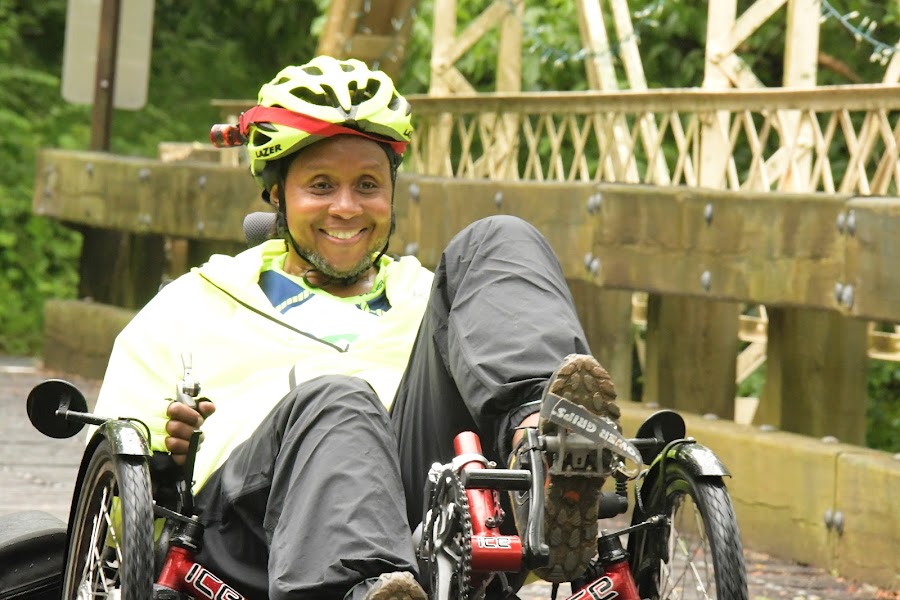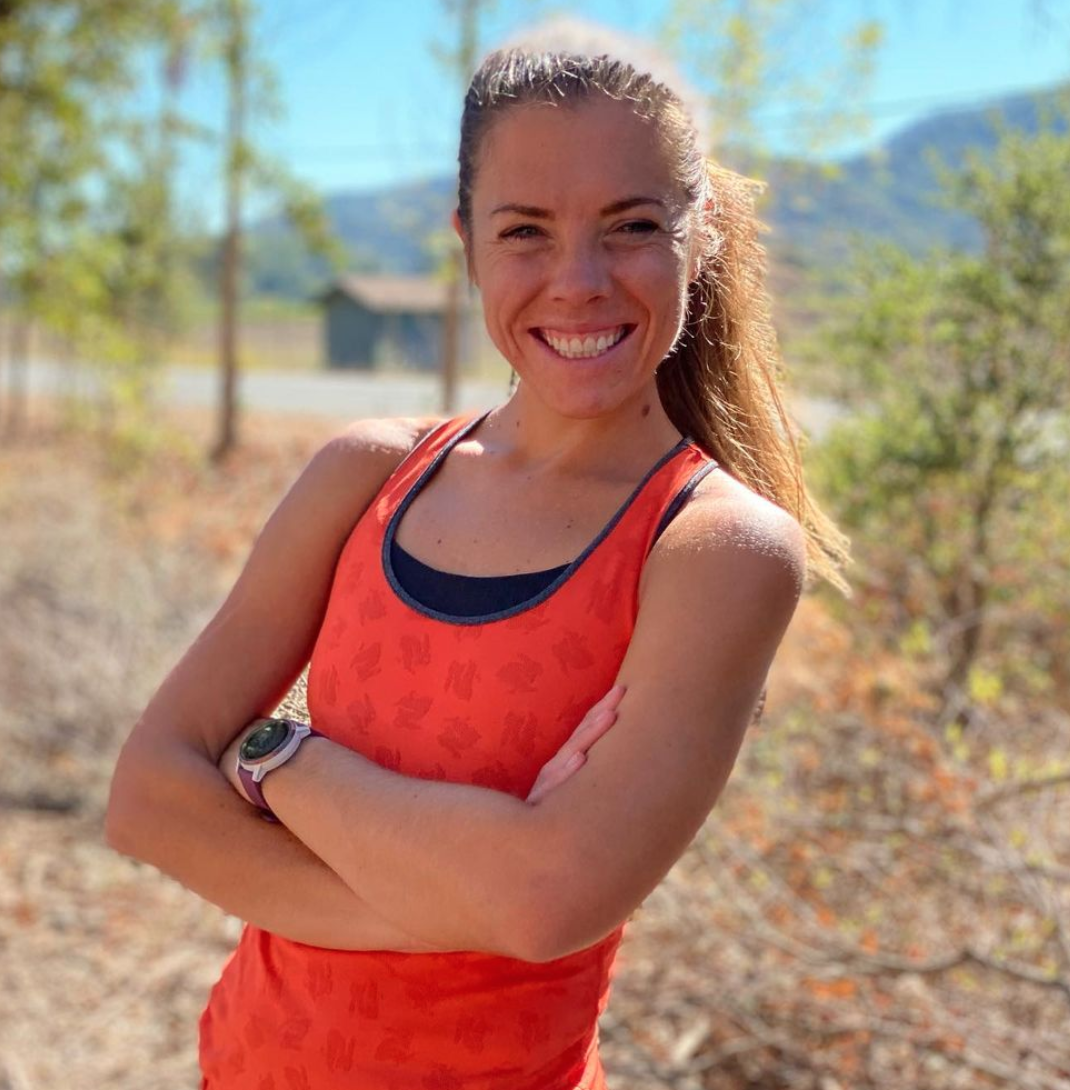Sponsored by
Jayden Sampson’s Journey to Half-Ironman

At the end of January, we featured Katie O’Dell in our first interview in the the series My Journey. Today, I am proud to present to you the second athlete we will be featuring in this series. We will be talking monthly and be able to follow Jayden Sampson’s Athletic Journey to Half-Ironman.
Today’s interview is an opportunity to get to learn about who Jayden is and give you background before we follow along. Jayden is training for his first half-ironman at 70.3 Happy Valley which will take place on July 2nd.
I hope you enjoy the interview and if you have questions you’d like me to ask Jayden, drop a comment or send an email to info@runtrimag.com and we will be sure to get that into the conversation.
Jayden Sampson’s Journey to Half-Ironman
Tell me more about yourself: What was growing up like?
I grew up in Evanston, IL. Both of my parents enjoyed exercise but my father had a special interest in running, basketball and tennis. He ran several marathons, and even qualified for the Boston marathon. He eventually stopped playing basketball and decided to focus on tennis and running; he participated in several tennis tournaments. My mother enjoyed running too and was the one who introduced my father to tennis.
My athletic endeavors began with the Junior Olympics. I was a high jumper using the western roll in middle school. When I got to high school (Evanston Township High School), I did track and field and even participated in the discus, and shot put events. I also played tennis and badminton, but not on a team. My friend and I and were pretty competitive. I often rode over to her neighborhood and played tennis during the summer. We enjoyed it.
I spent hours hitting against a backboard to work on my groundstrokes. Once I got to college, I played one intramural tennis tournament in my first year and won. Since the University of Chicago is not a bastion of athletics, we could walk onto any team, and I walked and I walked on to the cross country team, and completed two events during my first two years in college. I got injured during my second year.
I was swimming, or at least trying to swim, that summer after my injury. Now, I did not think swimming was as challenging as running, but that summer, the lifeguard, an older gentleman, asked me one day, after seeing me do breaststroke for weeks, to swim as fast as I could across the pool freestyle. I indicated that my breathing was not good during freestyle, and asked me to try it anyway. So there I was, swimming 50 meters and trying not to drown or drink all of the water in the pool! And low and behold, he looked at me at the end and said, “You should be swimming freestyle.” That summer, he taught me how to do flip turns, and I began to swim and realized that it was in fact as challenging as running. I started to swim in college, but not on a team, just for fitness. Later, while living in Philly, I joined an LGBTQ swim club called Fins.
I had not transitioned then, so I was swimming and competing as a woman. My first competitive swim was a 500-yard swim but I eventually stopped swimming with the Fins due to time constraints.
My other sport was Shotokan karate. I started karate in college and got a brown belt in law school. After graduating from law school, I continued to train after moving to Philly to practice law, but then stopped. Because of my love of the body and its movements, I had become a certified fitness trainer by this time. I was also motivated by weight gain due to what I now know is food addiction. Exercise has always been part of my life, even when I did not exercise. When not exercising, I always knew I should move my body.
Were you always an athlete?
I think it is fair to say that I have athletic leanings and have been involved in formal and informal athletic activities throughout my entire life. However, my bicycle tour vacation led to a greater commitment to my athletic endeavors.
What kind of struggles did you have?
Beginning in college, my main struggle was food addiction which impacted my weight. I gained weight in college and continued gaining weight in law school. Of course, there was lots of dieting and two medically supervised weight loss attempts, but none of them addressed food addiction. I did not understand that I had a food addiction until I moved to Philly to practice law and read the book, “A Food Addict: The Body Knows,” by Kay Sheppard. I did not finish the book because if I had, I might have joined Overeaters Anonymous (OA) in the ’90s; however, I did stop eating ice-cream and became aware that sugar was an issue.
I found OA in the early 2000s, but it was not helpful—I did not understand what I was supposed to be doing. In August 2015, I joined Food Addicts in Recovery Anonymous (FA) and was given a non-sugar (and no substitutes), no flour, no binge foods food plan, and for the very first time, I experienced food neutrality. I did not realize that many or even most people were not like me. They were not drawn to food in the same manner as I was. I was abstinent for two years, which led to a weight loss that allowed me to celebrate my 50th birthday traveling across the US on a trike.
I enjoyed training for the bike tour and actively sought advice from those who had done the TransAmerica bicycle tour in the past. During the lead up, I got the maps from Adventure Cycle and I am a lifetime member now. It was a wonderful gift of abstinence and having a healthy relationship with food.
I did not crave sugar or flour during the 4300-mile sojourn. It was easy to ensure I ate the foods my body needed to travel the 80 days, having a trailer that weighed over 50 lbs. Since 2017, my abstinence has wavered, but since December 2021, I have abstained from sugar, flour, and my favorite binge foods. I think it is essential to share that addiction is a problem. Still, it is important to highlight that THE problem when it comes to any addiction is emotional unmanageability.
Every human being suffers from what I like to abbreviate as EUM (yes, I know it should be EU, but that refers to the European Union!). At this point in my human development, I believe that learning to accept reality and manage my feelings and dysfunctional thinking is the key to true freedom and free will. I have no free choice if I am operating from the standpoint of dysfunctional thinking. For example, let’s imagine growing up in a house where people called you dumb or stupid all the time or where you experienced trauma of any kind. You will develop thinking based on dealing with those labels of that trauma, and that kind of thinking will bind you to the past and make it very difficult to see reality. In essence, the lenses you use to experience the world are impacted by your past hurts, traumas, and pains and will make it impossible to see reality. You will only see a perception of reality based on your experiences. The point of a 12-step program and other healing systems is to help us “See” and care for our minds, bodies and spirits.
Did athletics help at all?
I never used exercise as a salve for my addiction, and I am grateful that I did not do so because then I might have become addicted to it. I always understood exercise to be something that I needed in order to take care of my body and times to take care of my mind.
How did you get into the triathlon?
After returning from my bicycle tour in 2017, I figured if I could do that, perhaps I could do a triathlon! I already enjoyed swimming, so a triathlon would not be hard, right? I already enjoyed biking (although I wish tris allowed trikes), and I was OK with running. I completed my first Olympic tri in 2018 and did another Olympic in 2022. In 2022, I decided that I was going to go for a complete Ironman. I had a co-worker who completed Lake Placid in 2022—I asked her about it and her experience. With this information, I then decided that I would go for it. So, the plan is to complete the half ironman in 2023 and a full ironman in 2024.
What made you choose this race?
It is excellent training for the full ironman in 2024 and is also not too far away in PA. My co-worker told me about it, and I figured it made sense to do something close by. It is under 4 hours away from me.
What is your goal for the race?
To finish with 30 to 45 mins to spare.
What do you feel your strengths in tris are? What about your weaknesses?
Swimming is my strength. I have not ridden a two-wheel bike often since I took up trike riding in 2012. In 2012, my weight was such that being on a two-wheel bike did not seem like a good idea. I did not see it as comfortable, and I wanted to get back into exercise despite being well over 200lbs on a 5’8 medium frame.
I did my first bicycle tour in 2012 on a trike, and other than hopping on a two-wheel bike to do my first Olympic tri, I don’t ride two-wheel bikes. However, I cannot ride my trike for the Happy Valley Half Ironman, and as I learned during my 2022 Olympic tri, it is too slow due to the weight. It is like a tank, albeit a very comfortable tank. So I have to work on my balance on a two-wheeler as this a weakness that I will need to overcome with time and practice. After all, I did ride a two-wheel bike all of my life until 2017. I now have arthritis in both knees and cannot run, so I will be walking 13.1 miles. However, I am thinking about teaching myself speed walking to maintain a faster pace.
What does a typical training week look like for you? Will it change in the upcoming months?
Right now, I am building a base. I do strength training twice a week, swim twice a week, and bike and walk once a week. Orange Theory helps with endurance training and I enjoy incorporating it into my training . Core and balance work are on my schedule 5 days per week. I am not consistent with the daily core work, and I need to be more disciplined about doing the balance work as well.
For the first time in my life since college, I am working with a coach. I decided that if I commit to being a triathlete, it might be a good time to get some support from experienced folks. My coach indicates training will change when we are 16 weeks away from July 2.
Advertisement

Hollie is a runner, hiker, swimmer, residing in California. She has worked in run specialty for nearly 8 years and has fit hundreds of people for shoes. Outside of the running world, she enjoys the general aviation world, her two cats, and spending time with her spouse.









